|
NOTE: Click on the individual photos above to expand for a larger view.
Subjata ceremonies are part of house blessings and other major life events here in North Thailand. I categorize them as “life extension” rituals. Last week our village had a Subjata ceremony for the whole village. A Subjata ceremony is a significant event that requires a lot of preparation. The most important aspects are (1) tying a white string around the designated area to identify it and connect it, (2) preparing a ceremonial tripod with traditional offerings attached, (3) honoring the spirit of the land with chanted invocations, (4) assembling an auspicious chapter of monks to chant, (5) connecting all the participants symbolically through a grid of string, (6) burning symbolic lengths of string and candles to signify the cancellation of the past, (7) concluding with poured water as pledges and benedictions are chanted. Men and women worked throughout the day before the ceremony to braid string into 3-strand cords and then into 9-strand cords. Other teams strung string down every road and lane with a loose end to connect to every household. The home owners then encircled every house and building in their compound and tied an end to the string left dangling at the gate. All this string, of course, was tied to the temple and the main images of the Lord Buddha inside. Other teams erected the tripod, produced leaf baskets of symbolic offerings, and got food, drink, seating and tent-shade ready. Early on the day of the ceremony five priests with assistants lit candles and incense at the ceremonial center of the village where a banana stalk pillar, waist high, supported a plus-shaped cross on the tips and center of which were placed five of the little baskets prepared the day before. Four other priests also chanted and made offerings of one little basket each in the four cardinal directions around the village. The main ceremony started at the auspicious hour of 9 when the last of the 7 priests arrived. Baskets were once more offered at the four corners of the village hall. The chanting was all about aligning supernatural powers, affirming that Dharma is supreme as the Lord Buddha discerned, and that all other powers were appeased and duly respected. There was doubt that the village was uniformly respectful, in fact. That was the reason for the ceremony. It was precipitated by a family of “outsiders”. As the story is told, about two years ago a woman from Hang Dong (the next town east of here) bought a plot of land and built a small house with gardens and ponds for her mother. The house was finished and the mother was moved in. None of the traditional house blessing ceremonies were held as far as we know, and we would know if they had been. After a time, the old woman did not thrive in this home. She was often sick, and then she died right there in the house. Her body was removed, also without any ceremonies. According to ancient tradition the “spirit of the land” should be informed and asked to agree to such disruptions of territoriality as building a new house, digging wells and ponds, and especially taking up residence and ending residency. When the old woman died in the house it confirmed the villagers’ concerns that the “spirit of the land” had been disturbed, possibly angered, and it was time to make amends. No one wanted the angry spirit of the land to go on a rampage and for unexplained trouble to become widespread. Hopefully the Subjata ceremony averted trouble. It may be the story is not yet over. As a village we will wait and see. As far as the dead woman is concerned, it all depends on whether her ghost was able to follow the corpse as it was removed and taken to Hang Dong where the funeral was held. If the ghost/spirit did not get lost there is every reason to believe it stayed near its departed host and made its way to heaven to await reincarnation. If it was not able to follow, it might be hanging around the house growing distraught. We will wait and see. What is a Christian view of this? (a) I think the old woman’s daughter mishandled this from the beginning by being disrespectful of community customs. The comment most often made is, “They had nothing to do with the village.” That was alarming and unfriendly of them. (b) These perspectives on the supernatural are not local. They are all over the North of Thailand and beyond. The anxiety this family caused cannot be attributed to ignorance, but only to disregard. We all believe the daughter simply does not care what anyone thinks around here. We have no idea what issues lie behind this attitude. Nobody thinks the daughter is a secular atheist, nor is there evidence she is a Christian – both of which might choose to have no “traffic” with the supernatural (also called animism or the occult). We think she is anti-social. (c) Had the mother been a Christian, it would have been helpful to reassure the village that the dead woman’s ghost has found rest far away from here in Christian paradise, and will not be disturbing the peace of the village. It would have been a sterling opportunity to interpret the Gospel. It is generally agreed that the Christians’ God can handle the lords of the land. It is a territorial matter. When God of the Christians takes over a territory, other gods and spirits depart. Until there are more Christians and people have more trust in the Christian message, parallel domains is how living together works here in the village.
0 Comments
Leave a Reply. |
AuthorRev. Dr. Kenneth Dobson posts his weekly reflections on this blog. Archives
March 2024
Categories |
| Ken Dobson's Queer Ruminations from Thailand |
|
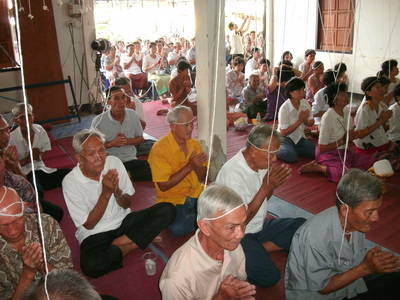
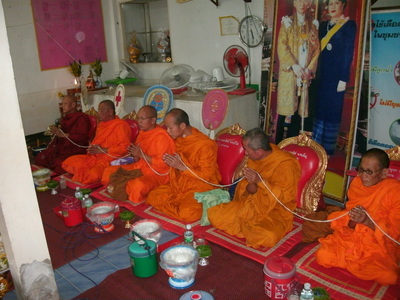
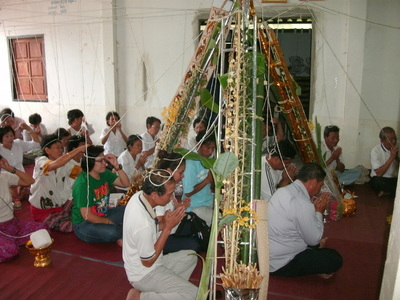
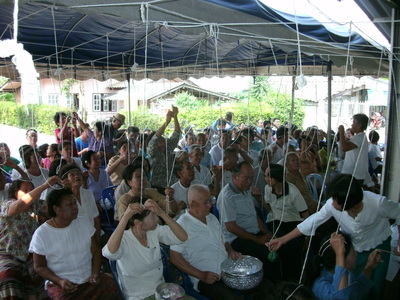
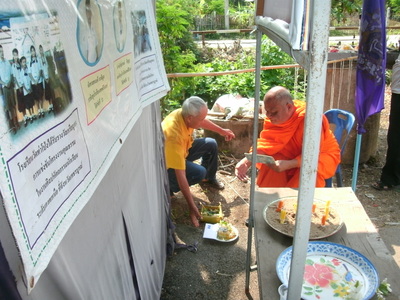
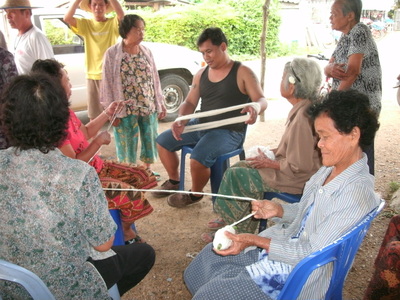
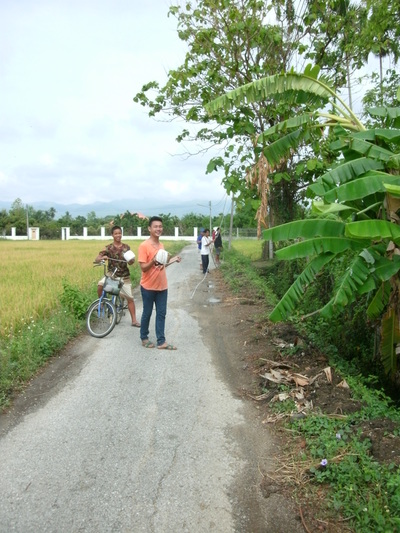
 RSS Feed
RSS Feed
